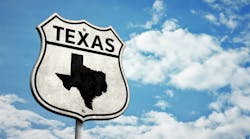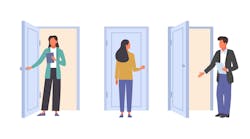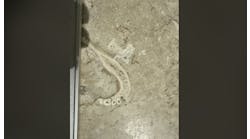I remember one unproductive evening on Facebook in 2017 when I read a post about a California dental hygienist who was providing dental hygiene services at people’s places of work. My first thought was, “How cool!” and my second thought was, “How is this possible?”
The answer was—teledentistry. I started researching this in my home state of Texas and did not find the answers I was expecting. At the time we could not use teledentistry to perform exams in Texas. We could, however, use telecommunication for consultations and referrals. At least we could until 2020, when the Texas State Dental Board declared that teledentistry was not allowed in any form. This quickly sparked outrage from dentists who wanted to provide safe, timely, and appropriate care to their patients while also navigating through the pandemic. The restrictive stance of the Texas State Dental Board led to a lawsuit filed by the group The TeleDentists, and teledentistry legislation was brought to the 2021 Texas legislature.
Deep in the heart of Texas
Along with other nonprofit dental directors, on March 31, 2021, I had the opportunity to testify in support of House Bill 2056 in Austin, Texas. We advocated not only for dentists’ rights to be able to use telecommunication in their practices, but to use it for the underserved, uninsured, and rural patients.
On June 26, 2021, Governor Greg Abbott signed Texas teledentistry House Bill 2056 into law. This important legislation passed unanimously and without opposition from either the House or Senate. But hold your horses—this doesn’t mean you can start incorporating teledentistry in your Texas practice today. HB 2056 does not go into effect until September 1, 2021, and insurance reimbursement does not go into effect until 2022.
Texas boot scootin’ boogying into the future
While the Texas State Board of Dental Examiners, Texas State Board of Pharmacy, and Texas Health and Human Services have not yet set rules for this new law, HB 2056 does apply some parameters to what teledentistry in Texas will look like. It makes clear that the scope of practice of dental hygienists and assistants will remain the same. The legislation goes so far as to state that dental hygienists may not administer local anesthesia.
It also makes clear that allied health-care providers participating in teledentistry are required to do this under the direction and supervision of a Texas dentist. The legislation sets parameters for supervision, allowing dentists to supervise a maximum of five allied health-care providers. This means dental hygienists in Texas will still work for and under the general supervision of a dentist but will be allowed to work in alternative settings. Alternative settings include nursing homes, patients’ homes, schools, hospitals, state institutions, public health clinics, and other institutions.
HB 2056 also sets guidelines for the use of teledentistry in Texas. Providers will be able to communicate using both synchronous and asynchronous communication. However, when asynchronous is used, providers will be required to have a synchronous audio interaction with the patient. Providers will be pleased to know they’ll be able to establish a patient-provider relationship via teledentistry. If a dentist determines a patient needs a prescription, they’ll be able to prescribe but will have some restrictions regarding controlled substances. Dentists will be limited to prescribing only two business days of opioid medication and five business days of medication for controlled substances that are not opioids.
For public health dental hygienists and dental directors like me, this means that we will be able to provide accessible dental care to those who face geographical barriers to care. It means that when I’m providing care in rural areas, I will be able to take pictures of areas of concern in the mouth and send them to my dentist. Teledentistry means good dentistry. It means dentists will have the power to dictate how they want to use it in their practices. It means dentists will be empowered to deliver care as they see fit.
Amber Lovatos, BSDH, RDH, MAADH, is the clinical director of dental services at TOMAGWA HealthCare Ministries and governmental affairs consultant for MouthWatch. She is an adjunct assistant professor at the University of Texas School of Dentistry at Houston. Lovatos is a national speaker and key opinion leader and the cofounder of Dental Hygiene Spark, a social media platform dedicated to empowering dental hygienists. She has dedicated her career to serving the underserved and increasing access to care. She is passionate about bringing care to communities and empowering others to do the same.






